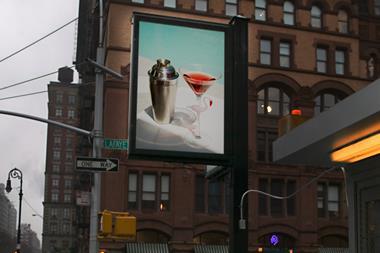Big society should not involve helping supermarkets to clear up their mess, says Joanna Blythman
Windsor and Maidenhead council is in the vanguard of the PM's "big society".
It plans to run a rewards scheme, rather like Nectar, where points awarded for carrying out community-spirited good works can be redeemed in outlets such as Sainsbury's, Homebase and Argos. The scheme works on the misanthropic assumption that there is no such thing as altruism, and that kindness must be monetised.
Without any trace of irony, council chiefs cite activities like wading into canals to drag out shopping trolleys, litter-picking and holding tea parties for isolated elderly neighbours, seemingly oblivious to the fact that supermarkets and similar outlets have played a major role in creating such problems.
Where did that floating, rusting trolley in the local duck pond come from in the first place? Who can't have noticed those buntings of torn, windswept carrier bags stuck in trees and clinging on to railings?
If many older citizens feel lonely and isolated in their homes, the supermarket blight that has closed down the nearby local shops where they used to know people is largely responsible. When there was a butcher, a greengrocer and a hardware shop within walking distance, there were people who knew you and with whom you could pass the time of day. Small shops provide a natural community. Supermarkets kill it off.
If councils want to incentivise public-spirited activity, they shouldn't allow it to be hijacked by companies that feed off the community without investing in it. Some cynicism is legitimate. Remember all those loyalty schemes where supermarkets and food manufacturers were supposedly funding the public good? The thousands of crisp packets needed to collect a "free" school book? The orgy of chocolate that earned you a "free" football? The mountain of supermarket reward points that produced a "free" printer ?
Let councils operate their own loyalty schemes, repaying community efforts with vouchers for public services reduced tariffs for bus fares, entry to pools, night classes and so on.
As it stands, council-led "big society" schemes are shaping up to be just another opportunity for big companies to indulge in more hypocritical posturing and brazen self-promotion, all the while masquerading as saviours of the community.
Joanna Blythman is a food journalist and author of Bad Food Britain.
Windsor and Maidenhead council is in the vanguard of the PM's "big society".
It plans to run a rewards scheme, rather like Nectar, where points awarded for carrying out community-spirited good works can be redeemed in outlets such as Sainsbury's, Homebase and Argos. The scheme works on the misanthropic assumption that there is no such thing as altruism, and that kindness must be monetised.
Without any trace of irony, council chiefs cite activities like wading into canals to drag out shopping trolleys, litter-picking and holding tea parties for isolated elderly neighbours, seemingly oblivious to the fact that supermarkets and similar outlets have played a major role in creating such problems.
Where did that floating, rusting trolley in the local duck pond come from in the first place? Who can't have noticed those buntings of torn, windswept carrier bags stuck in trees and clinging on to railings?
If many older citizens feel lonely and isolated in their homes, the supermarket blight that has closed down the nearby local shops where they used to know people is largely responsible. When there was a butcher, a greengrocer and a hardware shop within walking distance, there were people who knew you and with whom you could pass the time of day. Small shops provide a natural community. Supermarkets kill it off.
If councils want to incentivise public-spirited activity, they shouldn't allow it to be hijacked by companies that feed off the community without investing in it. Some cynicism is legitimate. Remember all those loyalty schemes where supermarkets and food manufacturers were supposedly funding the public good? The thousands of crisp packets needed to collect a "free" school book? The orgy of chocolate that earned you a "free" football? The mountain of supermarket reward points that produced a "free" printer ?
Let councils operate their own loyalty schemes, repaying community efforts with vouchers for public services reduced tariffs for bus fares, entry to pools, night classes and so on.
As it stands, council-led "big society" schemes are shaping up to be just another opportunity for big companies to indulge in more hypocritical posturing and brazen self-promotion, all the while masquerading as saviours of the community.
Joanna Blythman is a food journalist and author of Bad Food Britain.













No comments yet